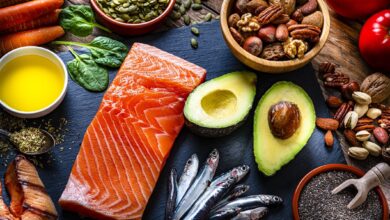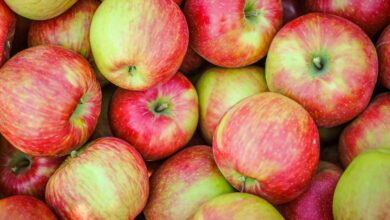Alkaline Diet – Recommended and Avoided Foods
The alkaline diet aka acid-ash diet or acid-alkaline diet focuses on eating foods that affect the pH balance of your blood. The core idea is simple. Eat more alkaline-forming foods and fewer acid-forming foods.

Recommended Foods in Alkaline Diet
The diet is based mostly on fruits and vegetables. Roughly 80% of your daily food intake should consist of alkaline-forming foods. The remaining 20% can be acid-forming foods.
Fruits: Almost all fruits are considered alkaline-forming, including citrus fruits, apples, bananas, berries, grapes, and melons.
Vegetables: Leafy greens like kale, spinach, and collard greens. Others like broccoli, cabbage, carrots, cucumbers, and peppers.
Root Vegetables: Sweet potatoes and turnips.
Legumes: Lentils and beans.
Almonds
Water
Avoided Foods
Meat and Poultry: Beef, chicken, pork, and turkey.
Fish and Seafood
Dairy Products: Milk, cheese, and butter.
Grains: Wheat, oats, rice, and pasta.
Processed Foods: Sugary snacks, sodas, and high-sodium foods.
Alcohol and Caffeine
Benefits of Alkaline Diet
The diet is essentially a very healthy eating pattern. Focusing on 80% fruits and vegetables increases your intake of:
- Vitamins and Minerals
- Fiber
- Antioxidants
The diet is high in fiber and low in processed calories. Therefore many people naturally consume fewer calories overall and feel full longer leading to weight loss.
Pros and Cons
You should view the diet less as a way to manipulate your body’s pH and more as a clever way to adopt a plant-heavy diet.
Pros
- Promotes Healthy Eating
- Limits Unhealthy Foods
- May Aid Weight Loss
Cons
- Misleading Scientific Basis (the claim that it changes blood pH is incorrect; the body already does this efficiently).
- Unnecessarily Restrictive



